Lonely East Side House Will Disappear
Purchase of property at 2137 N. Oakland Ave. puts entire block under control of Thermo Fisher Scientific company.
One of the East Side’s most visible houses is being demolished at this time. Although it’s nothing special to look at, the single-family residence at 2137 N. Oakland Ave., built in 1885, is the last remaining of the 14 that once lined the street from E. Windsor Pl. to E. North Ave. You can’t miss the house, thanks to its location, right in the middle of the block where the street makes a dogleg turn to the north, aligning with the city’s grid. The absence of any neighboring structures makes it stand out even more for the 17,000 motorists and uncounted pedestrians and bicyclists who pass it daily, as well as passengers on the Green Line MCTS bus. Soon, it will be no more.
Its purchase for $400,000 on November 30th puts the entire block under the control of Thermo Fisher Scientific. The $40 billion firm’s Milwaukee manufacturing facility, at 2202 N. Bartlett Ave., occupies the west end of the block, and looms behind the house, separated by an alley that bisects the block from north to south.
Assessed at $171,300; Sells for $400,000
In late 2020 I encountered a maintenance worker outside the plant and asked him about the home, which showed few signs of life. He said the company had been trying to buy it for years, but the owner wanted too much money — something on the order of a half a million dollars. “And he doesn’t even live there,” he claimed.
The owner, Robert K. Green, bought the property on April 8, 1995 for $54,000 from Dewitt S. Green, who had owned it since 1979, when he paid $20,000 for the five-room, 1,100-square-foot frame home, sited on its 2,880-square-foot lot. The land was assessed in 2021 for $69,000 ($24.00/s.f.); the house and garage brought the total to $173,100. The 2022 property tax was $4,232. Green finally agreed to sell the property in November 2021 to “Thermo Fisher Scientific (Milwaukee) LLC, a Delaware Corporation” for $400,000, more than double the assessment.
With the sale of this last holdout, Thermo Fisher now owns the entire block, and Green has been amply rewarded for his forbearance. The giant company spent about .000001% of its annual revenues for the structure, which it certainly did not value for the income it might produce as a single-family rental property. A Feb. 10 permit was issued to Environmental Construction Services of Madison for an asbestos removal project, since completed. This presumably entailed the removal of the asbestos siding that had covered the home for decades, now revealing the original 1885 wood siding, which had gone many years without a paint job before the coverup. On February 16th demolition contractor Henry Marohl took out a permit to raze the house and garage for $30,000. Beyond the demolition, Thermo Fisher has not indicated its plans for the property, and there are no permits on file for a plant expansion. But the company will have a nice empty lot available to do so, or perhaps to expand the employee picnic area to the north, pleasantly landscaped, and decorated with bright tables.
The Property in History
Developer Alonzo L. Kane subdivided block 220 into 39 lots in 1855, with the intent of selling them for the construction of modest houses and small shops. However, the five lots on the northeastern corner of the block soon became a right-of-way for the street-level tracks of the Chicago & North Western Railway. This proved most convenient for the purposes of Peter Schmidt, who started his stone finishing plant on Ogden Avenue in 1869 and needed more space. By 1891 his yard and stone saw mill occupied 11 lots adjacent to the railroad on the northeast corner of the block, in the area that now houses the bulk of the Thermo Fisher building complex. Schmidt employed some 30 to 70 workers at his plant, which processed the stone for the mansions being built on the lakefront, just blocks away, and such significant public structures as City Hall and the Pabst Theater.
Stonecutter Schmidt had quite an operation: his lots housed steam-powered overhead cranes and derricks, a yard for his weighty inventory, and facilities for sawing and finishing the stone, as well as stables for workhorses. Schmidt also built a large brick veneered home with a stone foundation for his family at 412-Bartlett Avenue, just across the alley from our subject property. It was the only masonry building on the entire block. The other score held modest frame structures quite like the home that is being demolished, and all now gone.
Grade Change Depresses Stone Business
The Schmidt firm’s ease of access to the railroad tracks was not long-lived. Trains running at street level in a crowded urban setting caused enough traffic mischief while they were on the move. The situation was even worse when trains would stop to load (or unload) their freight, particularly when the freight was tons of large blocks of stone. All of the steam derricks and draft horses at Peter Schmidt’s disposal could not make short work of this task. Similar situations existed in other places along the railroad corridors, leading to a flurry of grade separation projects in the developed areas of the city. (Our notorious “can opener” railroad overpasses in Walker’s Point and Bay View are an example.) Here the solution was to depress the tracks some 30 feet below grade, creating the limestone-walled canyon that is now the Oak Leaf Trail. This was good for traffic, but bad for Schmidt, leaving his factory high and dry.
The situation came to the attention of the editors of the January-June 1902 issue of “Stone: an Illustrated Monthly Magazine devoted to STONE, MARBLE, SLATE, CEMENT CONTRACTING AND BUILDING,” which ran this item:
P. Schmidt & Co., cut stone contractors who occupy about two acres of ground at Oakland and North avenues Milwaukee claim that they will be damaged to the extent of $75,000 by the proposed depression of the Northwestern tracks in that neighborhood. The chief engineer of the railroad has notified them that it will be impossible to provide sidetracks to the stone yard if the main line were depressed more than fourteen feet. This would leave Messrs Schmidt without shipping facilities and would necessitate their removal to other quarters.
Ultimately, the railroad provided a siding to serve the plant, and Schmidt built an elevator to haul the product from the trains.
From Boulders to Beakers
Schmidt liquidated his business in 1920. Around that time the burgeoning market for automobiles migrated north from Downtown. Car dealers and auto-related businesses lined E. North Ave. The most luxurious was the two-story emporium the Jonas Company built at 1707 E. North Ave., where it sold Cadillacs (and later, Lincolns) to the moneyed set, before closing in 1937. It soon became the home of Lakeside Laboratories, manufacturers of pharmaceutical products ranging from Ascorbic Acid to Zinc. In 1955 the 31-year old company, which a report said had “grown from local to national and international acceptance,” capped off an eight-year research program aimed at developing patented specialty pharmaceuticals … With its own synthetic facilities, Lakeside has integrated all research and production activities within its own plant.” After a series of ownership and name changes, including to Gleason Chemical Company, the building and company were acquired by Thermo Fisher Scientific in the late 1990s. After expansions in 1961-63 and 1967-70, the facility, now addressed as 2202 N. Bartlett Ave., grew to occupy the entire western half of the block, and had acquired and demolished the remaining buildings on the east side, except for this lone structure.
What is Thermo Fisher Scientific?
Thermo Fisher Scientific, based in Waltham, Massachusetts, bills itself as the “World Leader in Serving Science,” with 75,000 employees worldwide and revenues of $40 billion annually. It produces an array of tests, equipment, and other products used in laboratories of all kinds, with a particular attention to medical applications. According to the firm’s website, “Thermo Fisher is at the heart of the global response to COVID-19. We are working with government agencies and researchers to ensure priority access to instruments, consumables, safety supplies and other products to address the outbreak–particularly in analysis of the virus, diagnosis and personal protection.” In 2021, the company “achieved very strong results in the fourth quarter, with excellent growth in the base business and $2.45 billion of COVID-19 response revenue” out of the total $10.7 billion revenue. On April 9, 2020, when its COVID-19 response revenue began ramping up, the stock (NYSE:TMO) traded at $317 per share. It traded Wednesday for $587 per share.
In addition to its Milwaukee plant and neighboring real estate, valued at $2,134,200, the company also owns a surface parking lot for employees at 2121 N. Farwell Ave. The lot is valued at $681,700. The company bought it in 2000 for $2,420,200, another example of the firm paying more than assessed value for a desired site. Both properties are classified as “manufacturing,” and as such are assessed by the state. Soon the City assessor will hand over its files for 2137 N. Oakland Ave. to the state, which will be responsible for future assessments. This is a rare state of affairs on the East Side, which had few manufacturing properties historically, and even fewer today.
2137 N. Oakland Ave.
Plenty of Horne
-
Villa Terrace Will Host 100 Events For 100th Anniversary, Charts Vision For Future
 Apr 6th, 2024 by Michael Horne
Apr 6th, 2024 by Michael Horne
-
Notables Attend City Birthday Party
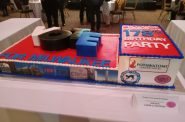 Jan 27th, 2024 by Michael Horne
Jan 27th, 2024 by Michael Horne
-
Will There Be a City Attorney Race?
 Nov 21st, 2023 by Michael Horne
Nov 21st, 2023 by Michael Horne


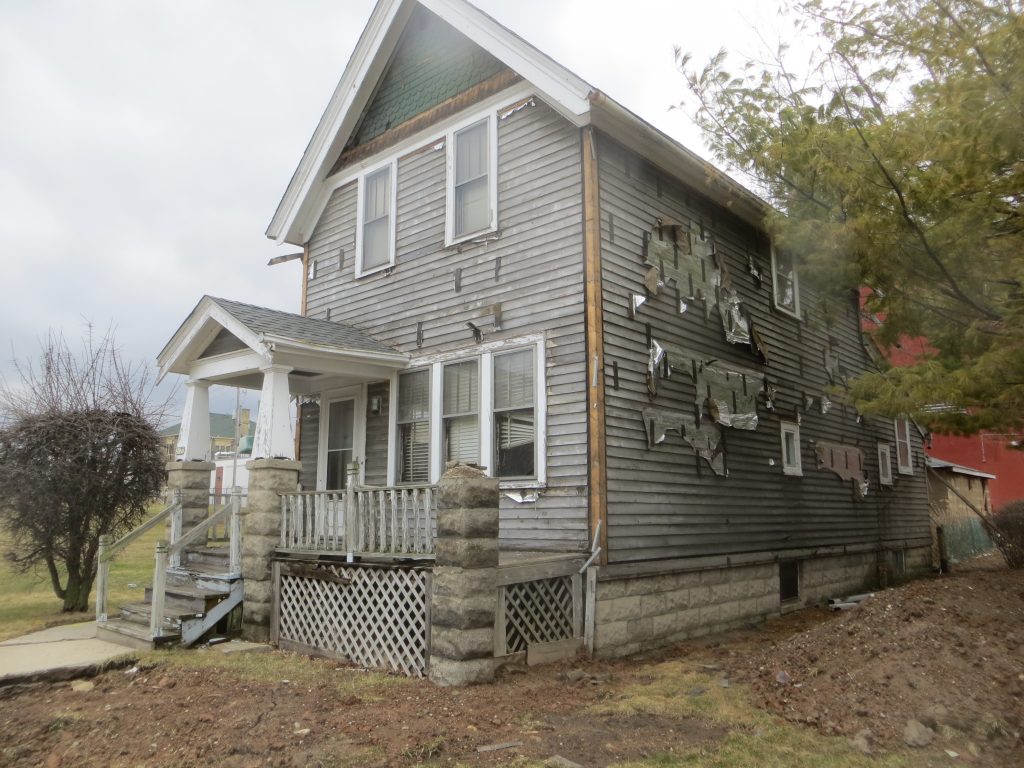
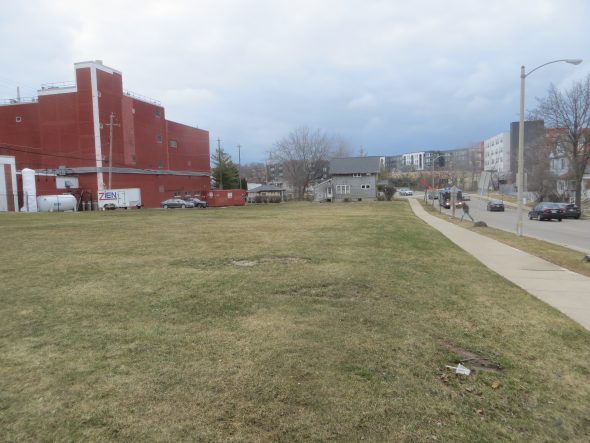
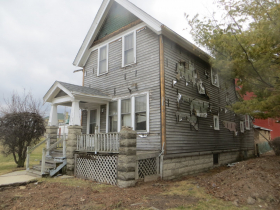
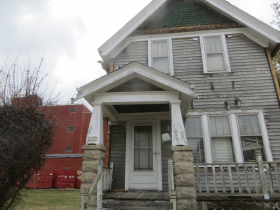
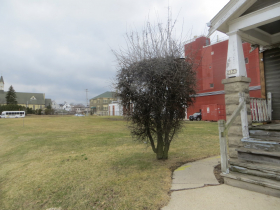
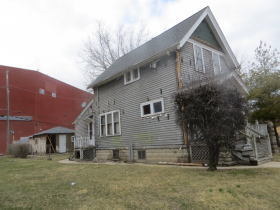
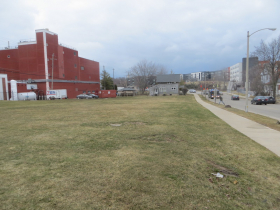
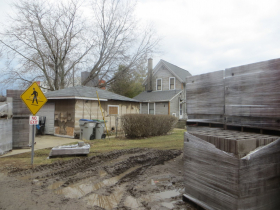




















The parking lot on Farwell seems underutilized. This is pure speculation, but perhaps the plan is to consolidate on the (now entirely owned) block to the west and sell the Farwell property for development.
That’s not the plan.